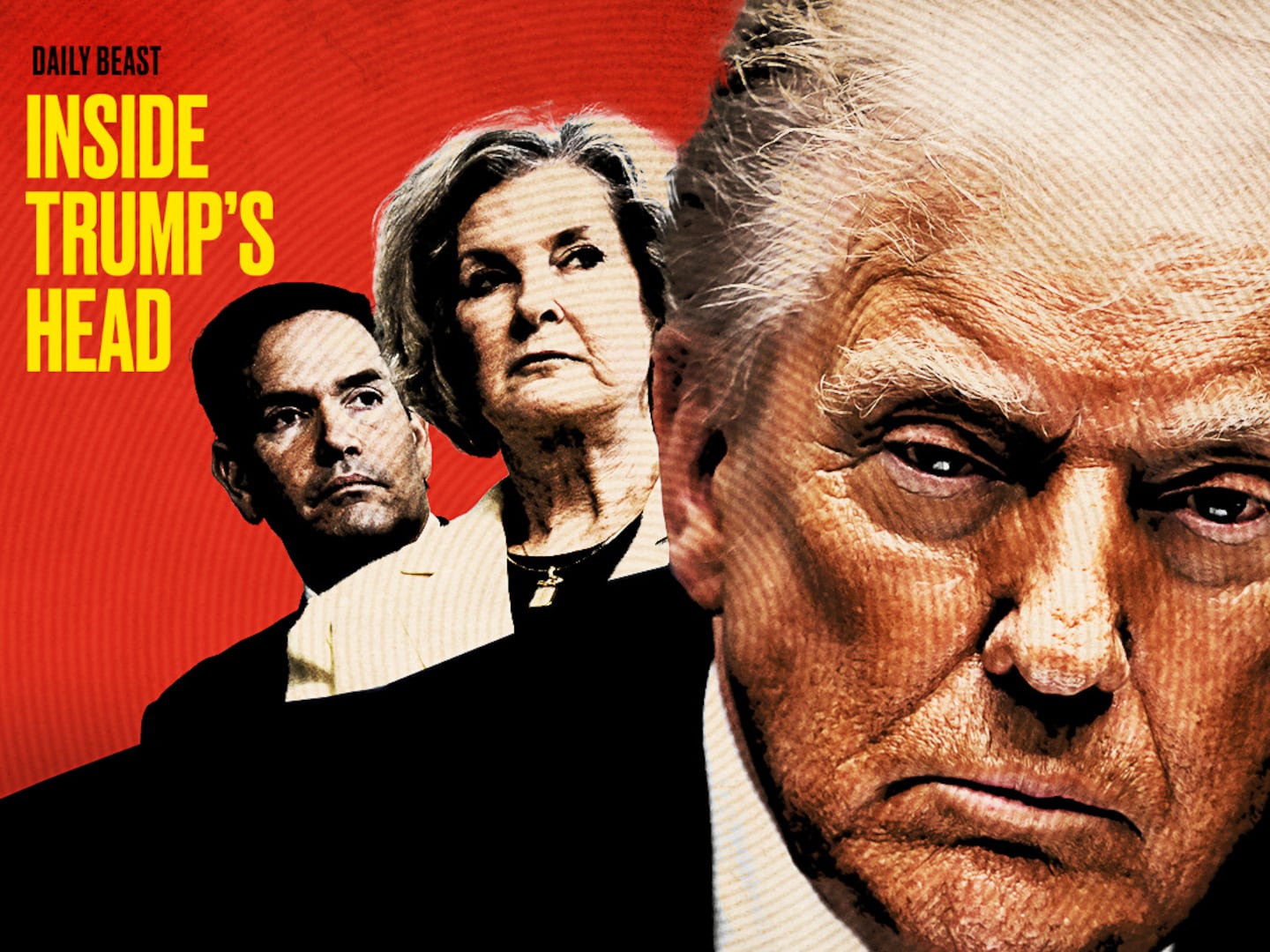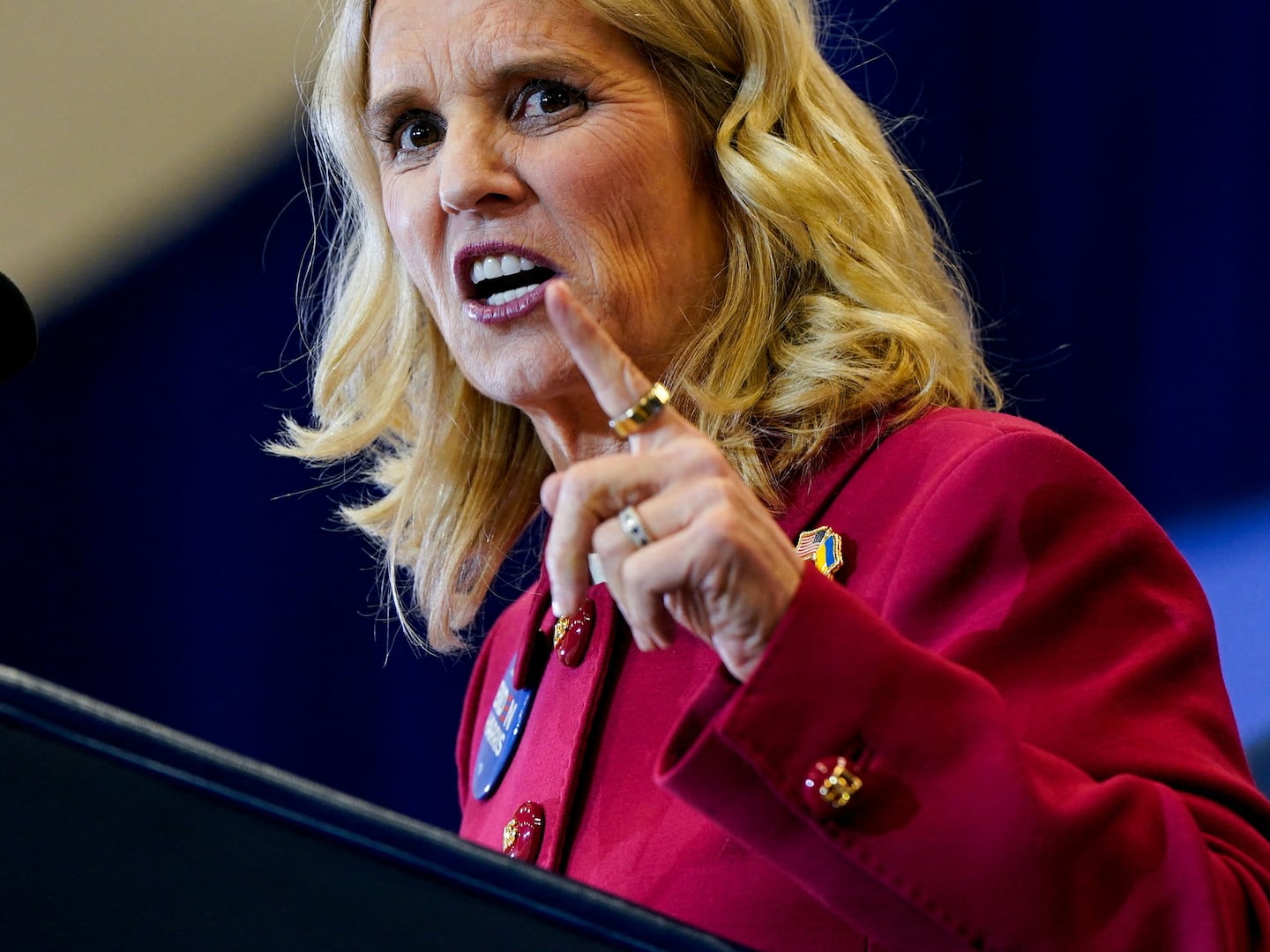
Do Elena Kagan’s actions as law school dean during a battle over military recruitment offer clues to how she’ll rule as Supreme Court justice? The Daily Beast’s Samuel P. Jacobs reports. Plus, read our full coverage of Elena Kagan
Elena Kagan’s paper trail as a judicial thinker is short—so short, in fact, that it can be read in one day. The newly announced Supreme Court nominee’s skimpy record should be a boon to President Obama, as Kagan won’t have any bothersome court decisions weighing her down, but it’s proving frustrating to court watchers on both sides of the aisle. Liberals fear they are being sold a successor to Justice John Paul Stevens who will morph into a fence-sitting Anthony Kennedy. Conservatives worry that Kagan will slide leftward, lingering on the bench for generations as the second coming of Thurgood Marshall, whom she clerked for and who gave her the nickname “Shorty.”
“I don’t think she was representing her own point of view on either side. Deans don’t do that,” says Alan Dershowitz.
• Read Our Full Coverage of Elena Kagan
And so to place Kagan, 50, on the appropriate ideological shelf, columnists and TV pundits are picking over her time at the helm of Harvard Law School. (She was appointed as the school’s first female dean in 2003, it is worth remembering, by notorious he-man Larry Summers, then university president.) Kagan’s tenure leading the faculty in Cambridge lasted five years and was notable for its hiring binge, improvement in infrastructure, and a battle over whether military recruiters should be allowed on campus. As dean, Kagan both kept recruiters out and allowed them in. For some, either one of these actions is all they need to know about her politics. She kept them out? Out of step with mainstream America. Unpatriotic. She let them in? Crypto-conservative, lacking any backbone. The truth is, of course, on neither extreme, but for people looking for clues to Kagan’s judicial philosophy, perhaps no better window exists than her handling of military recruitment.
• Paul Campos: Kagan Doesn’t Deserve It • Peter Beinart: The Problem with Kagan • The Right Reacts to Kagan Nod • Big Fat Story: Who Is Elena Kagan? The facts of the case: Kagan became dean following a 2002 decision by the Pentagon that threatened to withhold federal funding from universities that refused to allow military recruiters on campus. For decades, Harvard Law School had an antidiscrimination policy in place that prevented employers from using school resources if they discriminated on the basis of sexual orientation. Until 2002, military recruiters were allowed on campus but were not allowed to use the school’s career-services office to meet with students. Fearing the loss of funding, the law school allowed the military full access to its students. In 2004, the Third Circuit Court of Appeals ruled that such a threat was unconstitutional. Kagan, now dean, booted JAG reps out of the official recruiting pool. But before the Supreme Court ruled on the case (it eventually overruled the Third Circuit’s decision), Kagan once again allowed recruiters back in, under threat from the Department of Defense to withhold $400 million in funding—none of which goes to the law school, but dollars that the medical school and faculties depended on.
The decision to allow recruiters to return, while the military maintained its “Don’t Ask, Don’t Tell” policy, angered professors and activists on campus. Students staged a sit-in. Protesters placed pink soldiers around campus. Among those upset was Kagan, who declared, “The government shouldn’t use the power of the purse strings to force educational institutions to renounce their most foundational principles.”
Throughout her tenure at Harvard, Kagan sent nearly identical emails to students explaining how she was torn by the decision: She saw merit in the military’s purpose and those who protested its policies.
“I believe discrimination against gays and lesbians seeking to enter military service is wrong—both unwise and unjust,” Kagan wrote students on Sept. 27, 2007. “And this wrong harms the fabric of our own community by denying an opportunity to some of our students that other of our students have. The military is a noble profession, which provides extraordinary service to each of us every day. But this simple fact heightens, rather than excuses, the inequity in this case. The Law School remains firmly committed to the principle of equal opportunity for all persons, without regard to sexual orientation. And I look forward to the time when all our students can pursue any career path they desire, including the path of devoting their professional lives to the defense of this country.”
On Oct. 1, 2008, she amplified her praise, calling the path of military service “as deeply honorable as any I can imagine.”
Overlooking this thoughtfulness, critics are already accusing Kagan of being anti-military. “I do think her behavior at Harvard Law School with military recruiters is at least something she needs to defend,” Bill Kristol said Monday.
For those who were involved in the fight to keep recruiters off campus, however, this line of attack comes with a good deal of irony. Kagan was not in the vanguard of this battle; she disappointed allies who thought she didn’t go far enough. Boston College’s Kent Greenfield, who led the plaintiffs in the case, FAIR v. Rumsfeld, that challenged the constitutionality of the Defense Department’s threat to withhold funds, said that both Harvard and Kagan lagged behind other faculties. Harvard refused to join the main challenge against the government.
“Their absence in the litigation at the time was noted and hurt the litigation,” Greenfield said. (He noted that Kagan was an eloquent spokeswoman for opponents of “Don’t Ask, Don’t Tell.”)
That inaction bothered those within Harvard as well.
“It was frustrating,” said Sam Tepperman-Gelfant, a San Francisco attorney who was a leader of Lambda, the Harvard Law School LGBT organization, when Kagan was dean. “We were aware, for better or worse, that where Harvard comes out on issues like this makes a real difference. The fact that Harvard wasn’t stepping up by participating in the FAIR suit or otherwise leading the fight was very frustrating.”
Where Kagan and 53 other professors at Harvard did challenge the government’s policies was on statutory, rather than constitutional, grounds. In a friend-of-the court brief submitted in FAIR v. Rumsfeld, Kagan and company tried to get the Supreme Court to side with the law schools without invoking First Amendment rights. Their claim was that the military received the same treatment as any other employer who refused to comply with the law school’s nondiscrimination policy. Such an approach amounted to “equal access,” they said, and thus allowed them to retain federal funding while keeping the military out of the official recruitment process. It was a modest—progressive critics might say milquetoast—line of argument. It also gives the clearest picture of the type of jurist Kagan may become. If FAIR v. Rumsfeld is a good measure, she will not be an activist judge. She will tack toward narrow and safe decisions, forgoing grand, sweeping arguments when simple ones will suffice.
For those looking for an ideological profile to take away from the recruitment fight, Kagan proves opaque. She wrote forcefully about the harm caused by discrimination, yet she acquiesced to those perpetrating discriminatory policies. She spoke of the nobility of military service and the indignity that its rules perpetuated.
She was doing what her faculty and her ultimate boss, Larry Summers, asked of her, said faculty member Alan Dershowitz.
“I don’t think she was representing her own point of view on either side. Deans don’t do that,” Dershowitz said.
At the time, Kagan’s decision to prevent recruiters normal access to students and then to allow it fit within the mainstream of what other law schools were doing.
Finding the center is not just Kagan’s natural course. It was also smart politics, said another former leader of Lambda, Adam R. Sorkin, now an attorney in Chicago.
“I think she was so solidly in the middle ground. If there is anything that characterizes Elena Kagan is that,” he said. “I don’t think she is a risk taker. She is the type of lawyer that doesn’t go out on the limb. She is very much committed to the rule of law when she doesn’t agree with it and when she does.”
He added, “She has always been somebody who has had her eye on this seat, and to some extent she has always acted with the knowledge that her actions will be scrutinized. They were when she was nominated for solicitor general, and they will be even more so now.”
Samuel P. Jacobs is a staff reporter at The Daily Beast. He has also written for The Boston Globe, The New York Observer, and The New Republic Online.






